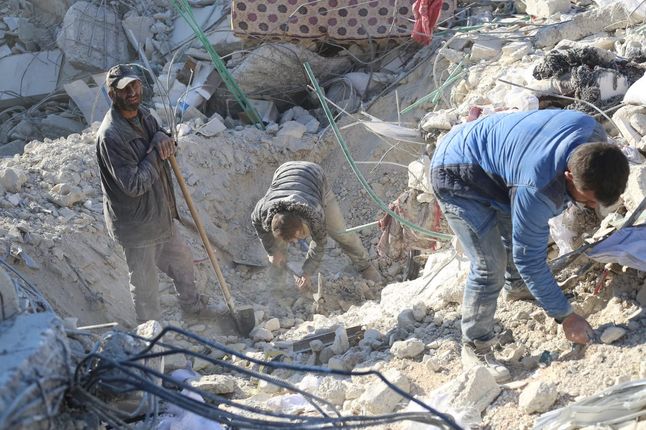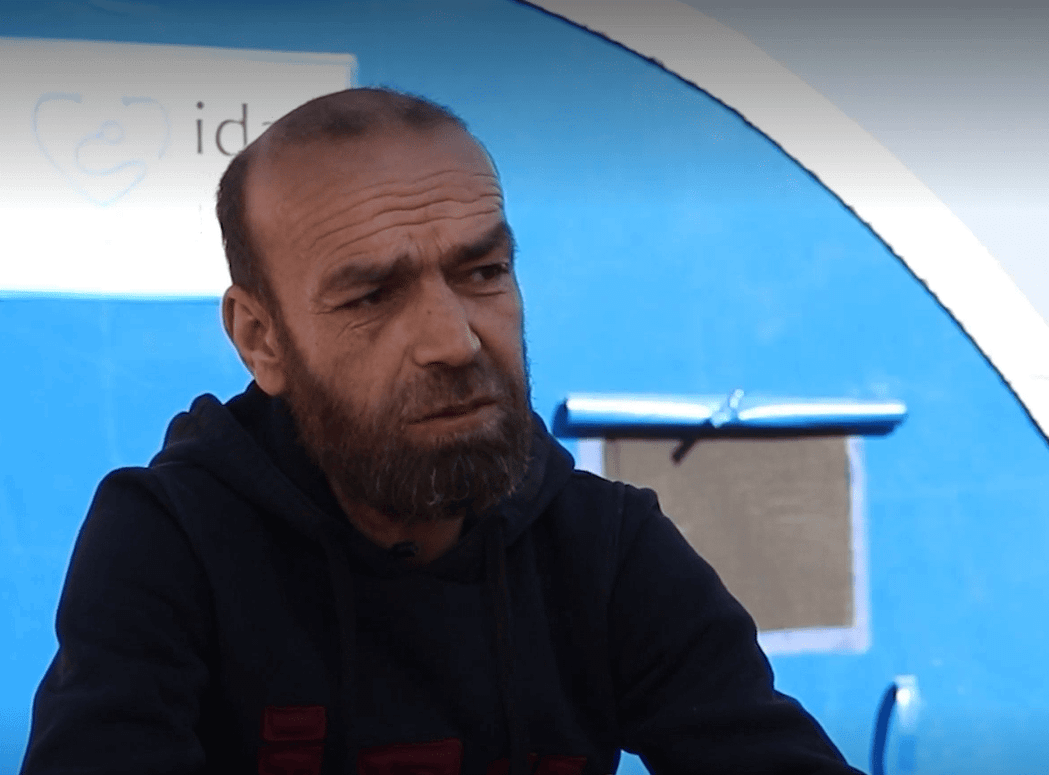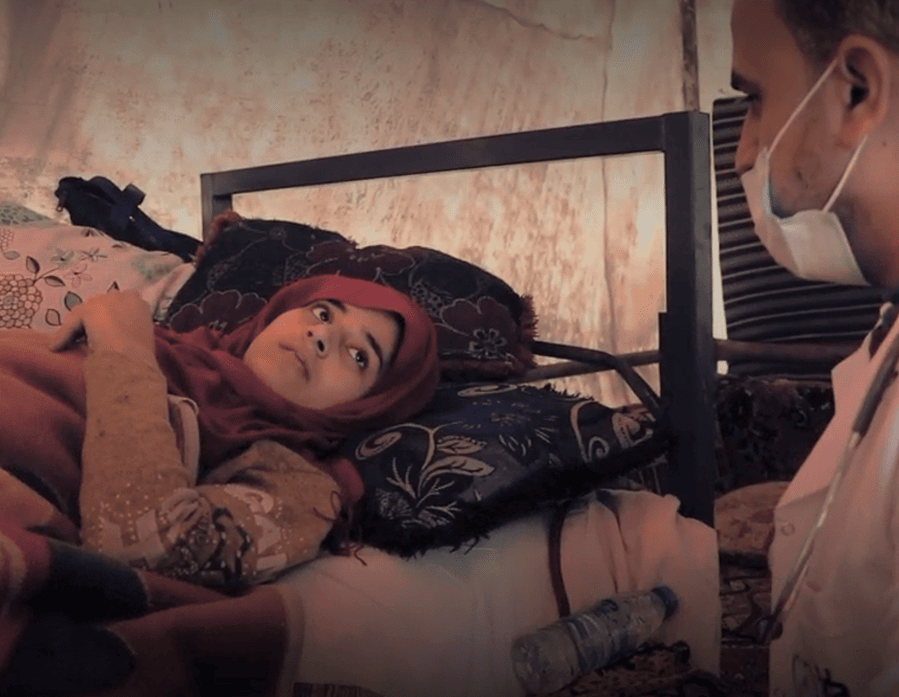
„The walls began to fall“ – three earthquake survivors from Syria tell their stories
Even weeks after the 7.7 magnitude earthquake struck the border region of Türkiye and Syria, millions of people continue to live in a constant state of terror. The thousands of aftershocks that have followed since the event serve as a painful reminder of the harrowing night that claimed the lives of their loved ones. Three earthquake survivors from northwest Syria share their experiences.
“31 persons, one family, lost their lives in this building”
“I live in a basement house. The building started to collapse floor by floor. We could not escape. Our house started collapsing from the east, we only had a corner in the kitchen after the collapse”, recalls 36-year-old Ali, who now resides with his daughter Ghina in a camp in Jindires, located about 70 kilometers northwest of Aleppo, which is supported by Malteser International. Fortunately, he was able to open a small window. “I cracked the concrete but couldn’t remove the iron bars.” In fear and isolation, he endured under the rubble that was once his kitchen, oblivious to the fact that the rest of the building, which also housed his extended family, had been destroyed.

“The rescuers came and cut the iron bars. It was a 40-by-40-centimeter hole through which I climbed out. But while I was trapped there, I didn’t know that the whole building had collapsed,” he says, “31 persons, one family, lost their lives in this building.”

16-year-old Amal recalls the shouting of her parents more vividly than the shaking of the ground. During the time the quake struck her home in northwestern Syria, the young girl and her sibling were separated from their parents as they sleep on different floors of the building. “My parents started shouting our names. They said it’s an earthquake. I held my little brother and ran outside” she recounts. “Then I fell and passed out. When I woke up, I was at the hospital. I was bleeding so bad and my leg was fractured. I felt a big wound here on my side”, the teenager says as she remembers the events of that night. During the fall, she suffered a severe injury to her pelvis. “She urgently needs a medical bed and some medical support“, explains her doctor, who works in a hospital run by the Independent Doctor’s Association (IDA) in partnership with Malteser International. It is one of six hospitals, a maternity clinic with children's hospital, and eight primary health care units in the Idlib and North Aleppo regions of northwestern Syria that is currently supported by Malteser International. “She lives in a tent with four families, they’re all afflicted. She needs proper nutrition and some medicine. Afterwards she will need to undergo physiotherapy”, he adds.
Rescued from under the rubble - after two days
"At 4 A.M. the earthquake hit us - I was wide awake. The building started shaking. The walls began to fall. I told my wife to get up. She didn't, so the wall fell on her," 54-year-old Muhammad recounts. Despite the tragedy that struck his family, he did not give up. He quickly sprung into action and called out to his neighbors who were trapped under the rubble with him. He told them to leave him behind and get out while they still could. It took Muhammad two grueling days to escape the rubble of the four-story building that had collapsed on him. But his fight for survival does not end there. He and his fellow survivors are now facing a new challenge: “We are left with nothing and need everything”. Carpets, tents, firewood, mattresses, blankets and solar panels are of particular importance to keep warm in the freezing temperatures. "There are many people in need of medical attention. We want a permanent medical point with medicine. Even patrol, we can't find it in this area," he pleads.
Malteser International and local partner organizations continue to provide emergency relief efforts to support those affected by the earthquake in Türkiye and Syria. Fortunately, Ali, Amal, and Muhammad were able to receive vital support. However, with countless others still struggling to cope with the aftermath of the disaster, more aid is urgently needed. Donations can make a real difference in helping these communities recover and rebuild their lives.
(March 2023)








